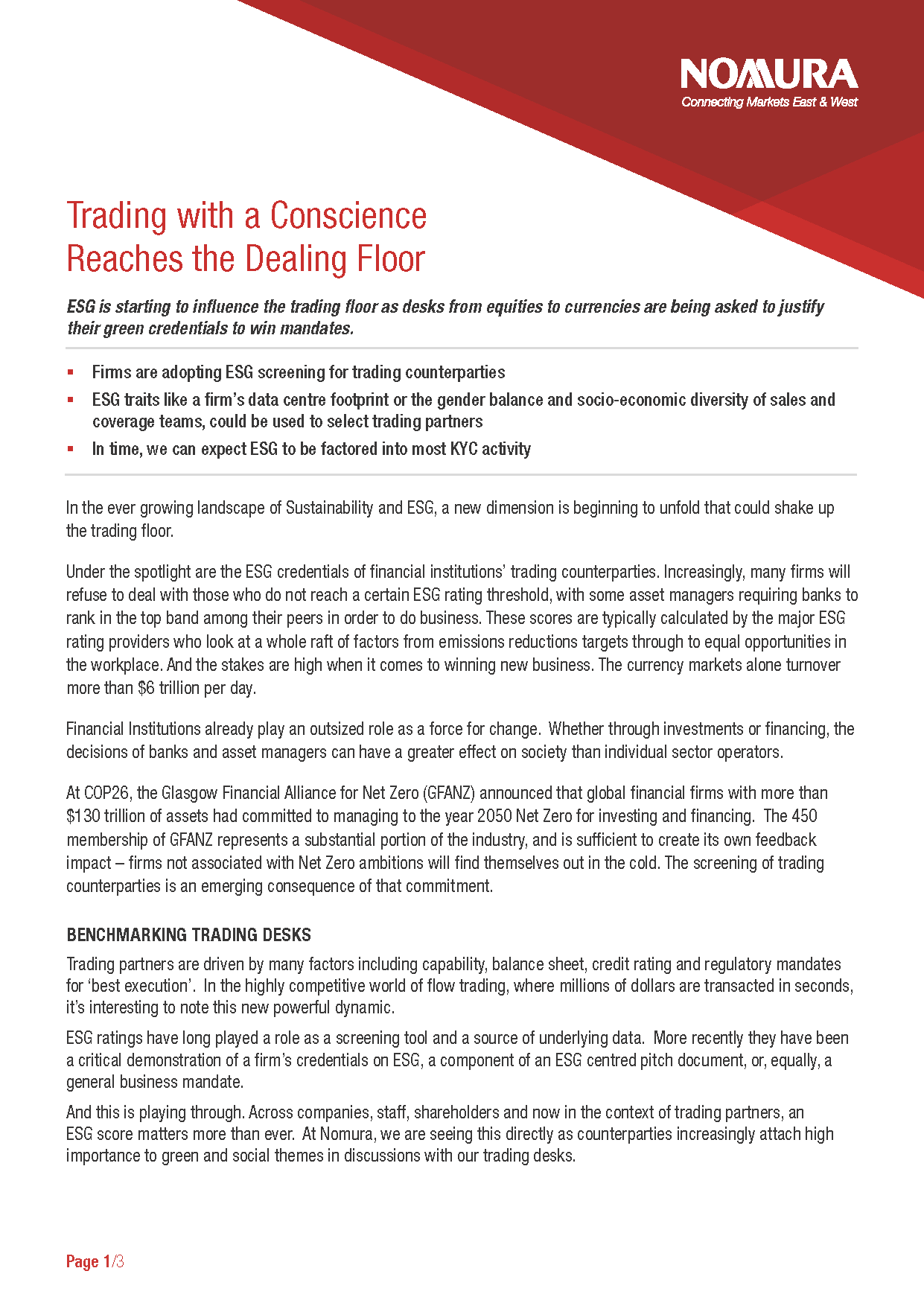In the ever growing landscape of Sustainability and ESG, a new dimension is beginning to unfold that could shake up the trading floor.
Under the spotlight are the ESG credentials of financial institutions’ trading counterparties. Increasingly, many firms will refuse to deal with those who do not reach a certain ESG rating threshold, with some asset managers requiring banks to rank in the top band among their peers in order to do business. These scores are typically calculated by the major ESG rating providers who look at a whole raft of factors from emissions reductions targets through to equal opportunities in the workplace. And the stakes are high when it comes to winning new business. The currency markets alone turnover more than $6 trillion per day.
Financial Institutions already play an outsized role as a force for change. Whether through investments or financing, the decisions of banks and asset managers can have a greater effect on society than individual sector operators.
At COP26, the Glasgow Financial Alliance for Net Zero (GFANZ) announced that global financial firms with more than $130 trillion of assets had committed to managing to the year 2050 Net Zero for investing and financing. The 450 membership of GFANZ represents a substantial portion of the industry, and is sufficient to create its own feedback impact – firms not associated with Net Zero ambitions will find themselves out in the cold. The screening of trading counterparties is an emerging consequence of that commitment.
Benchmarking Trading Desks
Trading partners are driven by many factors including capability, balance sheet, credit rating and regulatory mandates for ‘best execution’. In the highly competitive world of flow trading, where millions of dollars are transacted in seconds, it’s interesting to note this new powerful dynamic.
ESG ratings have long played a role as a screening tool and a source of underlying data. More recently they have been a critical demonstration of a firm’s credentials on ESG, a component of an ESG centred pitch document, or, equally, a general business mandate.
And this is playing through. Across companies, staff, shareholders and now in the context of trading partners, an ESG score matters more than ever. At Nomura, we are seeing this directly as counterparties increasingly attach high importance to green and social themes in discussions with our trading desks.
In time, we can probably expect ESG to be factored into most KYC activity, not just to the point where there may be material credit risks or reputational risks, but as a reflection of the culture of the firm you are choosing to do business with and as a visible measure of the priority given to ESG issues.
We are already seeing innovation in this space. Duncan Higgins, an equity market practitioner with a wealth of experience on client service models, has established Sustainable Trading, a new standard setter for trading firms. This body is not for profit and designed to create a transparent framework to assess ESG credentials of trading desks, as a way of benchmarking this factor on partner selection. More than 20 finance firms, have joined this initiative so far.
At a trading desk or business unit level, ESG characteristics could include the data centre footprint and energy efficiency of an algorithmic trading function, or the gender balance and socio-economic diversity of sales and coverage teams.
The world of ESG is touching every corner of business and it’s a positive development that trading is no exception given the urgency of the challenge to reach net zero targets and the momentum behind efforts to create fairer, more representative societies.






